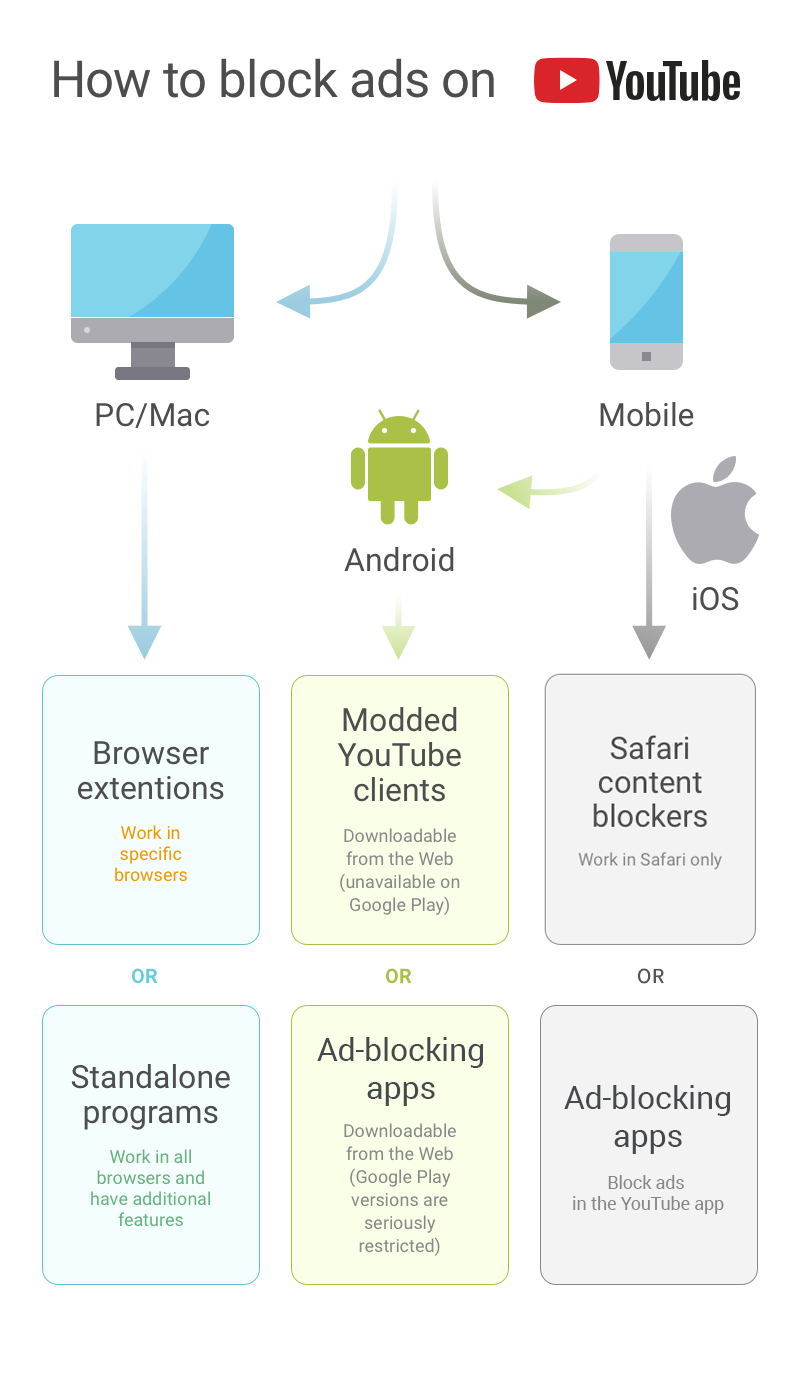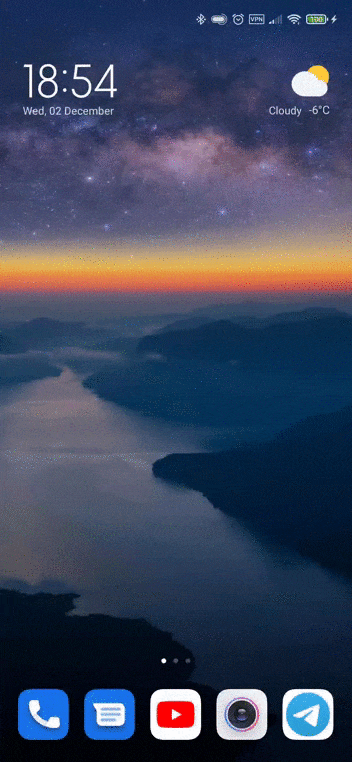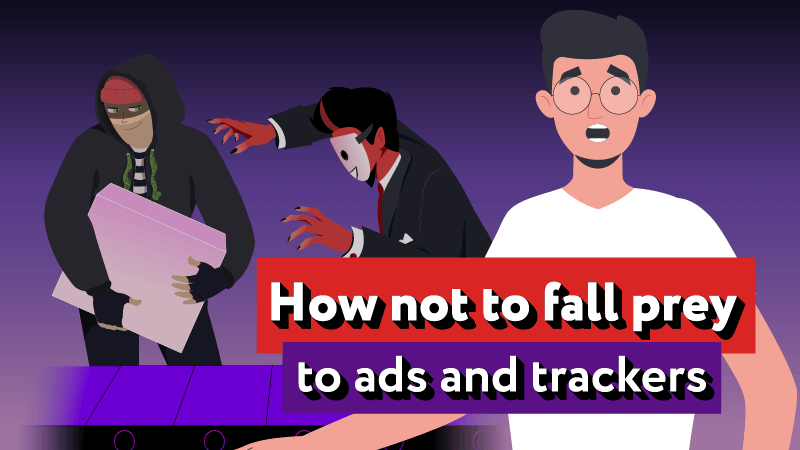Introduction
People watch more than
1 billion hours of video on YouTube every day. That's more than Facebook and Netflix combined. But a significant portion of that time is spent not only watching videos, but also watching ads. If you're not too happy with this state of affairs, this article is for you — we'll take a look at how to block ads on YouTube, and the reasons why your adblocker might not work on YouTube the way you'd like it to.
Types of YouTube ads
To see what we can do about them, first we need to know what types of ads one can encounter on YouTube. Here they are:
| Ad Format |
Description |
| Skippable video ads |
The most common ad format. Users can skip the ad after viewing it for 5 seconds. It can be inserted before, during, or after the video. |
| Short and long non-skippable video ads |
Unskippable 15+-second ad. It can be inserted before, during, or after the video. |
| Midroll ads |
Appear on videos that last more than 10 minutes: ads are spaced within the video, like TV commercials. Users must watch these ads before continuing through the video. |
| Bumper ads |
A lightweight, non-skippable video ad up to 6 seconds long. Users must watch the entire ad before the video can be viewed. |
| In-feed video ads |
Ads that appear in the YouTube Home feed |
| Content-embedded ads |
Ads that are in the YouTube video itself, absolutely unblockable but can be skipped manually |
How to block ads on YouTube
Blocking ads on YouTube is highly dependent on the device and operating system you're using. There is only one universal way to block ads — to purchase a premium YouTube subscription, but this has its drawbacks.
| PROS |
CONS |
| No ads on YouTube on any device (note: except for content-embedded ads) |
Paid (payment method is monthly subscription only) |
| Access to additional services like YouTube Music, video downloads, etc. |
Tied to your YouTube account (you need to be logged in) |
| |
Blocks ads only on YouTube |
If you are open to alternative solutions, here's the flow chart which will give you an idea what suits your case and what is technologically possible or not regarding the YouTube ad blockers. We'll go into more detail about each of these cases below.
How to block ads on desktop devices
Blocking YouTube ads is not as challenging on Windows or macOS computers and laptops. You can install a browser extension or a full-featured ad blocker.
Windows
For Windows PC, there are two types of software you can use to block ads:
Browser extensions block ads in a specific browser. They are inherently less powerful than standalone apps and largely depend on their browser in terms of what they can or can't do.
Standalone programs block ads in all browsers and programs. Not dependent on browsers, they have more tools in their arsenal. Some of them have additional features like privacy protection.
Our solution
Watch YouTube videos without interruption in any browser — download
AdGuard for Windows. We offer a 14-day trial so you can experience the beauty of clean, ad-free browsing for yourself.
macOS
For macOS, options are more or less the same as for Windows:
Browser extensions block ads in a specific browser. As with Windows, they are less powerful and browser-dependent.
Safari extensions block ads in the Safari browser. Somewhat similar to extensions for other browsers, but different enough to be listed separately. They work by their own rules but ultimately aren't more powerful than extensions for other browsers.
Standalone apps block ads in all browsers and other apps, plus sometimes have additional features like privacy or anti-malware protection.
Our solution
AdGuard for macOS not only lets you watch ad-free YouTube, but also offers a ton of additional features, aimed both at blocking ads and protecting your privacy online.
How to block ads on mobile devices
Due to technical limitations of Android and iOS, for a long time no ad blocker was able to block ads directly in the YouTube app itself. For a long time, the only way to avoid ads was to open YouTube in your browser, but let's face it, that's a lot of hassle compared to the pure in-app experience. Luckily, we've come up with an alternative — our own YouTube player that gets you as close to that as possible, while bypassing the limitations of Android and iOS. But let's start with a list of all the ways you can block YouTube ads on mobile devices.
Android
Third-party YouTube modded clients. Needless to say, while achieving the goal of serving you YouTube videos without ads, these apps have their own issues, like inability to log into them with your Google account. And of course they are always under the risk of getting shut down.
Watching the video in the browser with an ad blocker turned on. While possible, this method is extremely inconvenient in practice and does not guarantee results
Standalone apps. It's rare that an ad blocker can block ads on the YouTube app, but when it does, it's certainly the most convenient way to watch YouTube.
Our solution
Open the YouTube app and start the video you want to watch.
Tap the Share button and select AdGuard from the list of apps.
That's it! Our own YouTube player will open and you'll be able to watch videos without being interrupted by ads.
iOS
Safari Content Blockers block ads only in Safari, so you will suffer all the inconveniences associated with watching YouTube in a web browser, and they can't deal with most of the YouTube ads anyway.
Standalone apps for iOS are not considered powerful due to system limitations, but they can block YouTube ads in Safari and some of them even in the app itself.
Our solution
Open the YouTube app.
Choose a video and tap Share.
Tap More, then select Block YouTube Ads (by AdGuard).
AdGuard will open its ad-free video player.
Why my ad blocker is not working on YouTube
Ad blocking on YouTube is tricky, and there could be many different reasons:
Ad-blocking software is switched off.
Ad-blocking software settings are configured incorrectly, or YouTube is added to Allowlist.
Your specific ad-blocking software lacks filtering capabilities. Most often this happens with obscure browser extensions.
You are trying to watch YouTube on a mobile device. Most ad blockers cannot block ads in the YouTube app and in any browsers besides Safari (in the case of iPhone and iPad).
FAQ
Why am I seeing YouTube ads?
Free services like YouTube generate revenue by displaying ads, and they also offer paid subscriptions to hide the ads. However, in many cases such online ads are getting a little too aggressive and numerous, so more and more people are beginning to use ad blockers.
Are YouTube ads dangerous?
It depends on what you do with them. Just watching mid-roll ad breaks? It's okay. But clicking the links in these ads can lead you astray. Long gone are the days when an ad was just a link attached to a banner. Today, once you click an ad, it'll collect information about you, remember you, and follow you around the web forever. Don't forget that it's not uncommon for malicious agents to use ads to lure you to a phishing page — a seemingly innocent website that’s actually designed to steal things like your email address, passwords, or even your credit card number.
Can YouTube ads cause viruses?
It seems very far-fetched to assume that you'll actually get a virus by merely watching YouTube videos, but the real danger often lurks on the advertised website. Cybercriminals are tricky, they deceive users into clicking the links so they can install malware on our gadgets.
How do I block all ads?
There are many tricks you can use, but only one real solution: use a system-wide ad filtering app. AdGuard Ad Blocker would do fine.
How do I get rid of ads without an ad blocker?
Configure your browser settings and disable popups. There will be less pop-up windows, but you still won't block the majority of ads.
Purchase subscriptions to the services where you want to block ads. However, some websites may not offer an option to go ad-free.
Or use an ad blocker if you want to remove all the ads from everywhere.
Are ad blockers legal?
Absolutely. To understand the historical background, look up the battle between Eyeo, an ad-blocking company, and Axel Springer, a publishing company. Their conflict was arbitrated by a German court proving that ad blocking is legal, and hence, that users can and should control what they see on the Internet.
Are ad blockers safe?
Yes, if you use an ad blocker from a trusted developer. Search for information about it from legitimate sources and, ideally, download it from the developer's website. Study its privacy policy. Be careful and avoid suspicious YouTube ad blockers –
they may turn out to be fake.
Do ad blockers track you?
Less known free apps, not just ad blockers, are often riddled with trackers. Double-check your ad blocker: it should be from a trusted developer, downloaded from a reliable source. Did you nod twice? Then you can rest assured that your ad blocker isn’t tracking you.
Thank you for reading till the end! Hopefully, the article was helpful. Stay safe and untroubled out there online!














